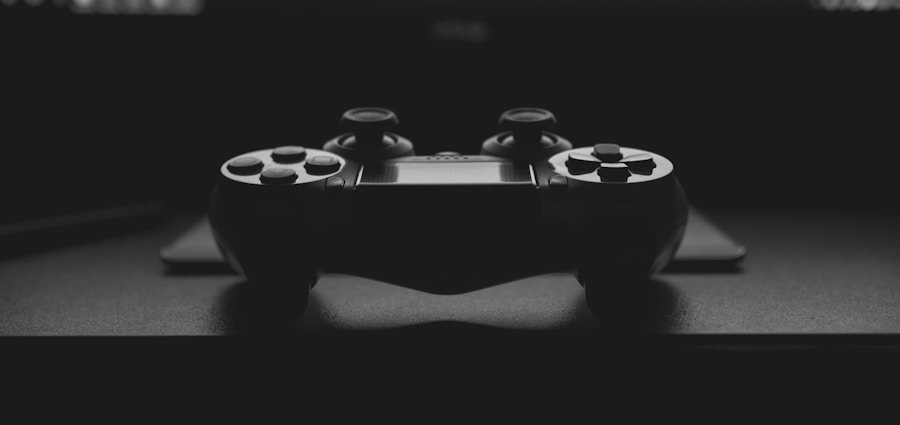Now Reading: The Benefits of Gaming: How It Improves Mental Health
-
01
The Benefits of Gaming: How It Improves Mental Health
The Benefits of Gaming: How It Improves Mental Health

As I delve into the world of gaming, I find myself increasingly fascinated by its multifaceted impact on mental health. The perception of gaming has evolved significantly over the years, shifting from a mere pastime to a complex medium that can influence our psychological well-being. Initially, I viewed gaming as a simple form of entertainment, a way to escape reality for a few hours.
In today’s fast-paced society, where stress and anxiety are prevalent, gaming has emerged as a potential tool for enhancing mental health. It offers an immersive experience that can provide relief from daily pressures and serve as a platform for social interaction.
As I reflect on my own gaming experiences, I realize that they have not only entertained me but also contributed to my cognitive and emotional development. This article aims to explore the various dimensions of gaming and its positive implications for mental health, shedding light on how this modern form of entertainment can be harnessed for personal growth and well-being.
Key Takeaways
- Gaming has been shown to have cognitive, emotional, social, and stress-relief benefits for mental health.
- Cognitive benefits of gaming include improved attention, decision-making, and multitasking skills.
- Emotional benefits of gaming can include mood regulation, stress reduction, and increased feelings of competence and autonomy.
- Social benefits of gaming can include fostering friendships, teamwork, and a sense of community.
- Gaming can provide stress relief and relaxation, and can also improve problem-solving skills and memory. Overall, gaming has a positive impact on mental health.
Cognitive Benefits of Gaming
Enhancing Decision-Making Skills
Strategy games, for instance, demand that I analyze complex situations, weigh options, and anticipate opponents’ moves. This mental exercise not only keeps my mind active but also translates into better decision-making skills in real-life scenarios. Research supports the notion that gaming can improve various cognitive skills such as spatial awareness, memory, and multitasking.
Improving Spatial Reasoning
When I play action games, I often find myself navigating intricate environments while keeping track of multiple objectives. This experience enhances my spatial reasoning and helps me develop a better understanding of how to navigate real-world spaces.
Fostering Critical Thinking and Adaptability
The cognitive benefits of gaming extend beyond mere entertainment; they foster a mindset that values critical thinking and adaptability, skills that are increasingly essential in our rapidly changing world.
Emotional Benefits of Gaming

Beyond cognitive enhancements, gaming also offers significant emotional benefits that resonate deeply with me. Engaging in virtual worlds allows me to explore different narratives and characters, often leading to emotional catharsis. For instance, role-playing games (RPGs) enable me to immerse myself in stories that evoke a range of emotions—from joy to sadness—allowing me to process my feelings in a safe environment.
This emotional engagement can be therapeutic, providing an outlet for expression that might be difficult to achieve in everyday life.
When faced with challenges in a game, I learn to persevere despite setbacks.
This experience translates into real-life situations where I encounter obstacles. The ability to face failure in a game without dire consequences helps me build emotional strength and resilience. As I navigate through various challenges in gaming, I develop a mindset that embraces growth and learning from mistakes, which is invaluable for my overall emotional well-being.
Social Benefits of Gaming
The social aspect of gaming is another dimension that has profoundly impacted my mental health. Contrary to the stereotype of gamers as isolated individuals, I have found that gaming can be a powerful tool for social connection. Multiplayer games provide opportunities for collaboration and teamwork, allowing me to interact with others who share similar interests.
Whether I’m strategizing with friends or competing against players from around the world, these interactions foster a sense of community and belonging. Moreover, online gaming platforms have enabled me to forge friendships that transcend geographical boundaries. Through voice chats and forums, I have connected with individuals from diverse backgrounds, sharing experiences and perspectives that enrich my understanding of the world.
These social interactions can combat feelings of loneliness and isolation, which are prevalent in today’s society. By engaging with others through gaming, I cultivate meaningful relationships that contribute positively to my mental health.
Stress Relief and Relaxation through Gaming
In moments of stress or anxiety, I often turn to gaming as a form of relaxation and escape. The immersive nature of video games allows me to temporarily disconnect from the pressures of daily life. As I lose myself in a captivating storyline or an engaging gameplay mechanic, I find relief from stressors that may be weighing heavily on my mind.
This form of escapism is not merely avoidance; it provides me with a mental break that can rejuvenate my spirit. Furthermore, certain genres of games are specifically designed to promote relaxation. Casual games or simulation titles often feature soothing visuals and calming soundtracks that create a tranquil atmosphere.
When I engage with these types of games, I experience a sense of peace that helps alleviate anxiety. The act of playing becomes a mindful practice, allowing me to focus on the present moment rather than ruminating on past worries or future uncertainties.
Gaming and Problem-Solving Skills

One of the most rewarding aspects of gaming is its ability to enhance problem-solving skills. Many games present players with intricate puzzles or challenges that require creative thinking and strategic planning. As I navigate through these obstacles, I am constantly honing my ability to analyze situations and devise effective solutions.
This skill set is not only applicable within the realm of gaming but also extends into my everyday life. For example, puzzle-based games often require me to think outside the box and approach problems from different angles. This experience encourages me to adopt a flexible mindset when faced with challenges outside of gaming.
The iterative process of trial and error in games teaches me the value of persistence and innovation—qualities that are essential for effective problem-solving in any context. By engaging with these challenges in a virtual environment, I am better equipped to tackle real-world issues with confidence and creativity.
Gaming and Memory Enhancement
Another fascinating benefit of gaming is its potential to enhance memory capabilities. As I immerse myself in various game narratives and mechanics, I find myself recalling intricate details about characters, storylines, and gameplay strategies. This engagement stimulates my memory retention and recall abilities, which can be beneficial in both academic and professional settings.
Research indicates that certain types of games can improve working memory by requiring players to remember information while simultaneously processing new data. For instance, fast-paced action games often demand quick reflexes and sharp memory skills as players must keep track of multiple elements on-screen. As I engage in these high-stakes environments, I notice an improvement in my ability to retain information and respond effectively under pressure—a skill that proves invaluable in everyday life.
The Overall Positive Impact of Gaming on Mental Health
In conclusion, my exploration of gaming has revealed its multifaceted benefits for mental health. From cognitive enhancements to emotional resilience, social connections to stress relief, gaming offers a rich tapestry of experiences that contribute positively to well-being. As I reflect on my own journey through various virtual worlds, I recognize the profound impact that gaming has had on my life.
While it is essential to approach gaming mindfully—balancing it with other aspects of life—I cannot overlook the positive influence it has had on my mental health journey. By embracing the cognitive, emotional, social, and stress-relief benefits of gaming, I have cultivated skills and connections that enhance my overall quality of life. As society continues to evolve alongside technology, it is crucial to recognize the potential of gaming as a valuable tool for promoting mental health and well-being in our increasingly complex world.
A related article to how gaming improves mental health can be found in the link What are the most impactful innovations in cloud gaming services of 2025. This article discusses the advancements in cloud gaming technology and how it is shaping the future of gaming. It highlights the benefits of cloud gaming in providing access to a wide range of games and improving the overall gaming experience. These innovations in cloud gaming services can also have a positive impact on mental health by providing a convenient and immersive gaming experience for players.



























